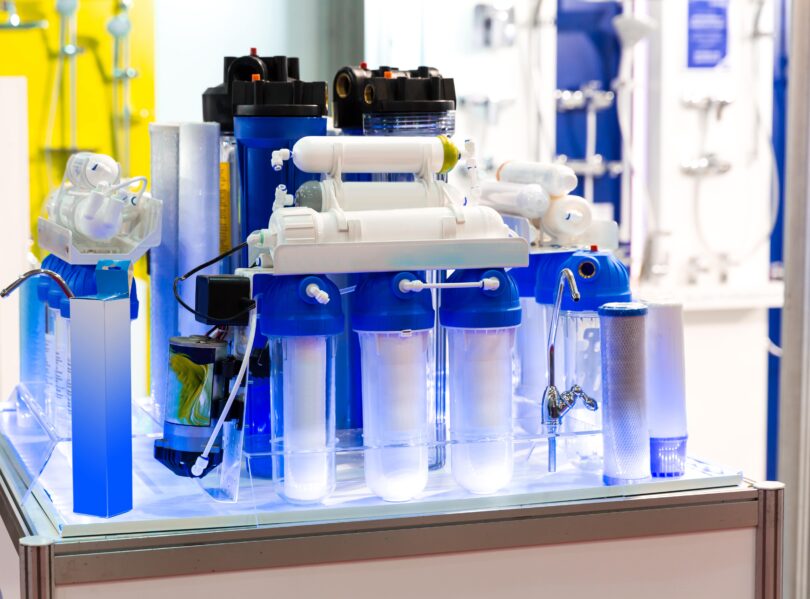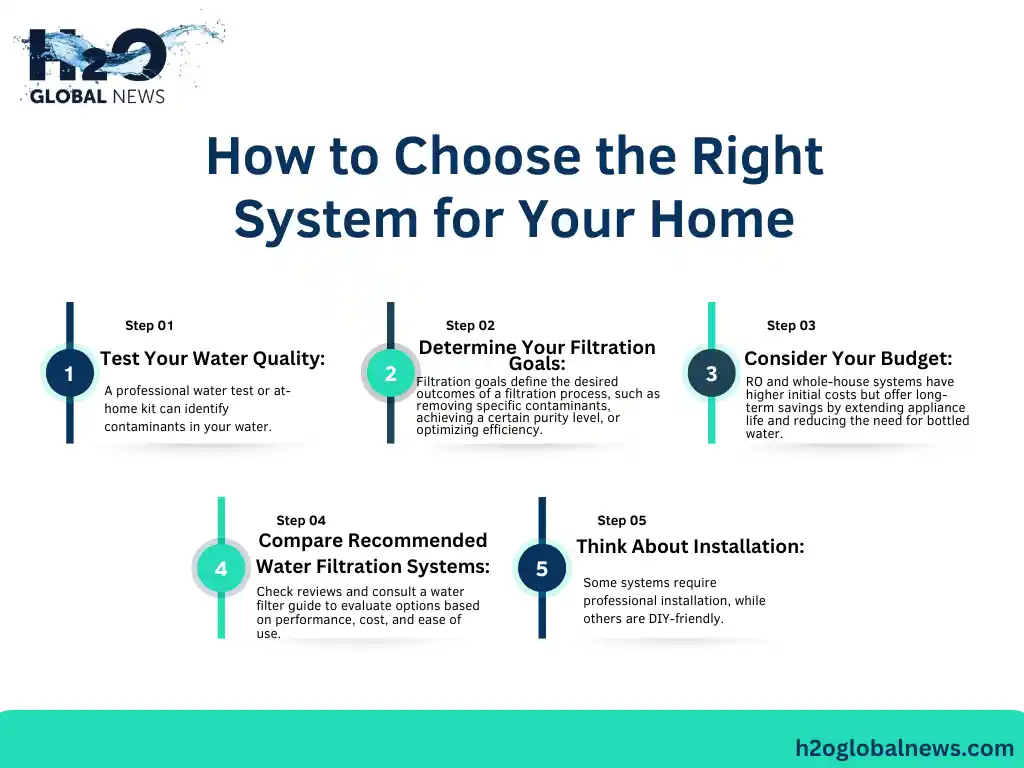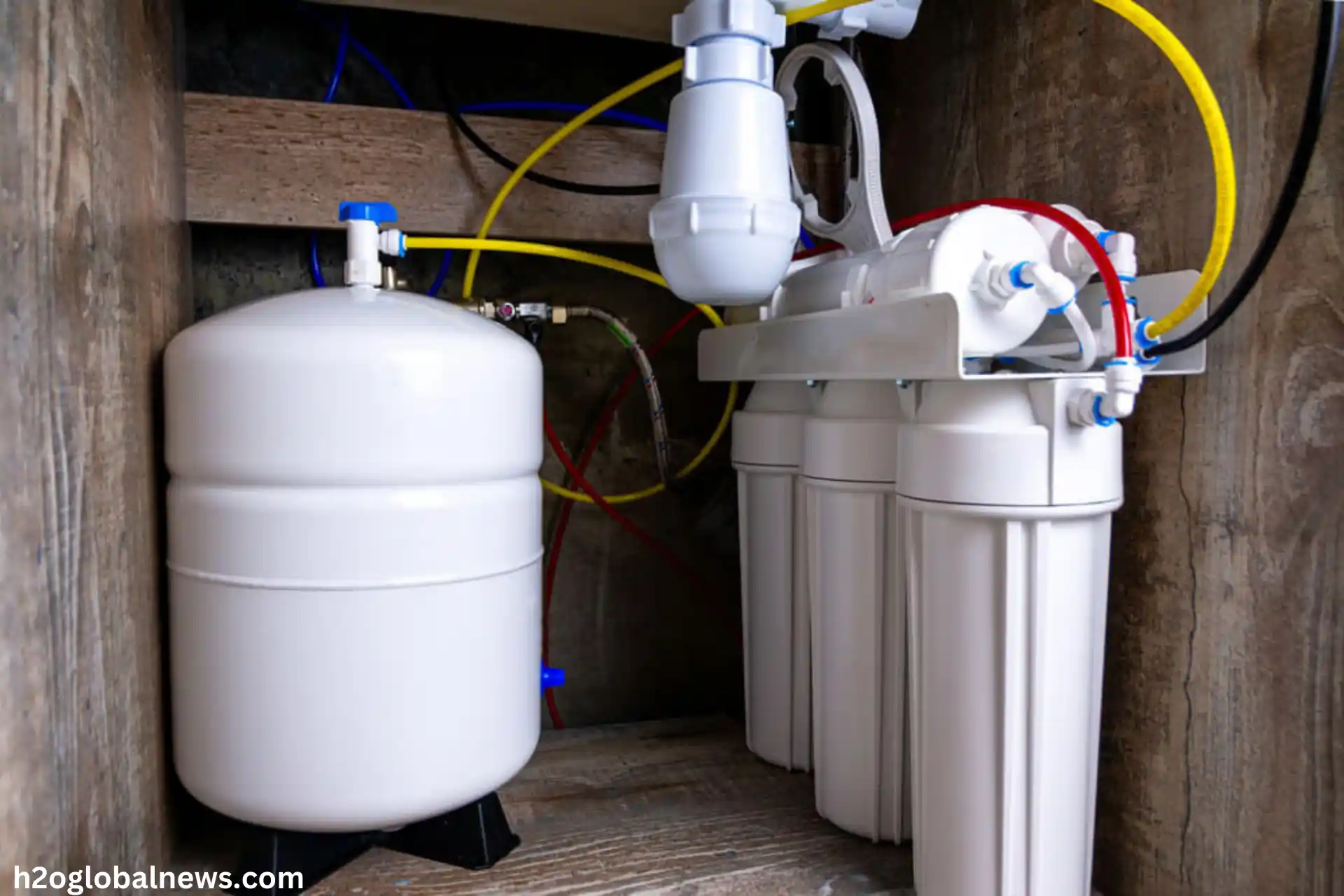Today, access to clean and pure drinking water is essential for good health. However, with the increasing pollution and contaminants in our water sources, having a reliable water filtration system in your home is becoming increasingly important. A dependable filtration system guarantees that your water is safe and delicious, regardless of its contaminants, such as dangerous microorganisms, heavy metals, or chemical residues. In this article, we’ll explore everything from the features of the ultimate water filtration system to how to choose the best option for your home.
Why Is a Water Filtration System Essential?
Although tap water may seem pure, it frequently includes undetectable contaminants like:
- Chlorine and chloramines: Although used for disinfection, chlorine and chloramines can alter flavor and result in long-term health problems.
- Heavy Metals: Old pipes can allow lead and mercury to leak into water, which can be extremely harmful to one’s health.
- Microorganisms: In untreated or inadequately treated water, bacteria, viruses, and parasites may exist.
- Chemical Residues: Pharmaceuticals, industrial chemicals, and pesticides can contaminate water sources.
A home water filtering system eliminates these impurities, making the water safer and enhancing its flavor and aroma.
Types of Water Filtration Systems
Here is a detailed examination of the most widely used filtering system types currently on the market:
1. Whole House Water Filtration System
All the water that enters your house is filtered by a whole house water filtration system connected to the main water line. This system is perfect for:
- Bathing: Clears your skin of pollutants that can irritate.
- Cooking: Provides hygienic water for cooking.
- Laundry: Prevents mineral buildup that can damage appliances and clothes.
Carbon filters, sediment filters, and UV sterilization are essential technologies for pathogen removal.
2. Filtration Systems Under Sinks
These devices are mounted beneath your kitchen sink and are made for targeted filtering. Usually, they:
- Use multi-stage filtration to get rid of lead, chlorine, and other impurities.
- Deliver the filtered water directly to a different faucet.
These systems are an excellent choice if you’re primarily concerned about drinking and cooking water.
3. Water Filters on Countertops
Countertop filters are a practical option for renters or tiny homes. They
- Attach straight to your faucet.
- To get rid of elemental pollutants, use ceramic or carbon filters.
4. Reverse Osmosis (RO) Systems
RO systems are very effective and are frequently regarded as the gold standard in water filtering. They
- Eliminate up to 99% of impurities, such as nitrates, fluoride, and heavy metals.
- To achieve accurate filtering, use a semi-permeable membrane.
More sophisticated RO systems can help reduce water waste during the process.
5. Ultraviolet (UV) Purifiers
Ultraviolet purifiers use UV light to kill bacteria and viruses in water. They are often used with other filtration systems to ensure comprehensive purification.
UV purifiers effectively disinfect water, eliminating up to 99.99% harmful microorganisms. They are also chemical-free, making them an environmentally friendly option. However, UV purifiers do not remove chemical contaminants or sediments.
6. Ceramic Filters
Ceramic filters use porous ceramic materials to remove bacteria, protozoa, and sediments from water. They are a traditional and reliable method of filtration.
Ceramic filters are durable, reusable, and can remove pathogens and particulates. They are also relatively low-cost and easy to maintain.
7. Water Softeners
If your water is hard (rich in minerals like calcium and magnesium), a water softener can be used with your filtration system. This is especially helpful for preventing scale buildup in places with hard water.
8. Water Softeners
Do you need a solution for a specific issue? Fluoride or alkaline water filters can address niche concerns, such as removing fluoride or boosting water’s pH level.
Do you need a solution for a specific issue? Fluoride or alkaline water filters can address niche concerns, such as removing fluoride or boosting water’s pH level.
Features of the Ultimate Water Filtration System
The ultimate water filtration system offers unparalleled performance by fusing state-of-the-art technology with an intuitive design. When purchasing one, search for:
- Filtration in Multiple Stages: Effective systems use filtration layers to target contaminants, including microorganisms, heavy metals, and sediment.
- Maintenance Simplicity: Select systems with minimum maintenance needs and quickly replaceable filters.
- Sturdy Design: High-quality polymers and stainless steel housings guarantee the system won’t leak or degrade for many years.
- Adaptable Filters: Select systems that allow you to customize filtration to meet the specific requirements of your water source, such as removing nitrate or fluoride.
- Elevated Flow Rate: Avoid systems that reduce water pressure. Advanced systems efficiently filter while maintaining a high flow rate.
How to Choose the Right System for Your Home
Here’s a step-by-step guide to finding the best home water filtration system for your needs:
1. Test Your Water Quality
A professional water test or at-home kit can identify contaminants in your water.
2. Determine Your Filtration Goals
- Comprehensive Filtration: A whole house water filtration system filters all water entering your home.
- Targeted Filtration: For drinking and cooking, consider under-sink or countertop systems.
3. Consider Your Budget
While RO and whole-house systems cost more upfront, they save money in the long run by improving appliance longevity and reducing bottled water purchases.
4. Compare Recommended Water Filtration Systems
Check reviews and consult a water filter guide to evaluate options based on performance, cost, and ease of use.
5. Think About Installation
Some systems require professional installation, while others are DIY-friendly.
Maintaining Your Water Filtration System
Proper maintenance is key to ensuring your water filtration system continues to operate effectively. Here’s what you need to know.
Regular Filter Replacement
Most filtration systems require regular filter changes to maintain their effectiveness. Check the manufacturer’s guidelines for how often filters should be replaced and keep a schedule to ensure timely maintenance.
System Cleaning and Upkeep
In addition to replacing filters, some systems may need periodic cleaning to prevent the build-up of contaminants. Follow the manufacturer’s instructions for cleaning and maintaining your system.
Troubleshooting Common Issues
If you notice a change in water quality or a decrease in flow rate, it might indicate a problem with your system. Common issues include clogged filters or faulty components. For troubleshooting tips, refer to the user manual or contact customer support.
Conclusion
Any home should invest in a water filtration system to guarantee your family access to safe, clean water. Knowing your needs is essential to choosing the best system, whether you use a drinking water filter or a whole-house system for complete protection.
With reliable brands and this comprehensive water filter guide, you can enjoy peace of mind and healthier water for many years.
FAQs
Q: What is a water filtration system?
A water filtration system removes contaminants such as chemicals, sediment, and bacteria from water, ensuring it is safe for consumption and other household uses.
Q: What makes the ultimate water filtration system?
The ultimate water filtration system combines multi-stage filtration, high-quality materials, and tailored options for specific water contaminants.
Q: What is H2O water filtration?
H2O water filtration refers to high-quality systems that provide safe and purified water using advanced technologies.
Q: How can I find a recommended water filtration system?
To find the best water filter for your needs, look for trusted brands, read customer reviews, and consult a reliable water filter guide.









